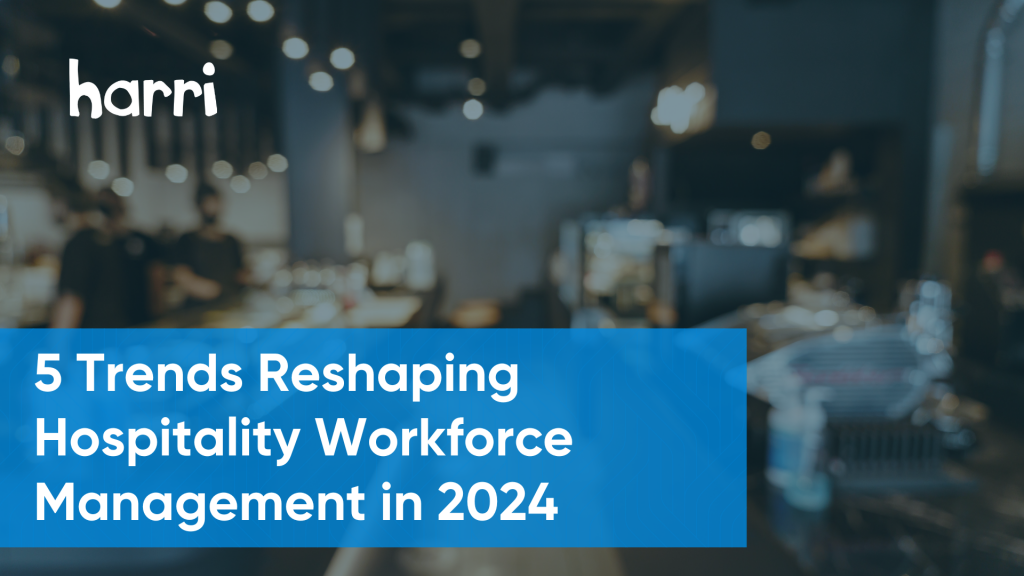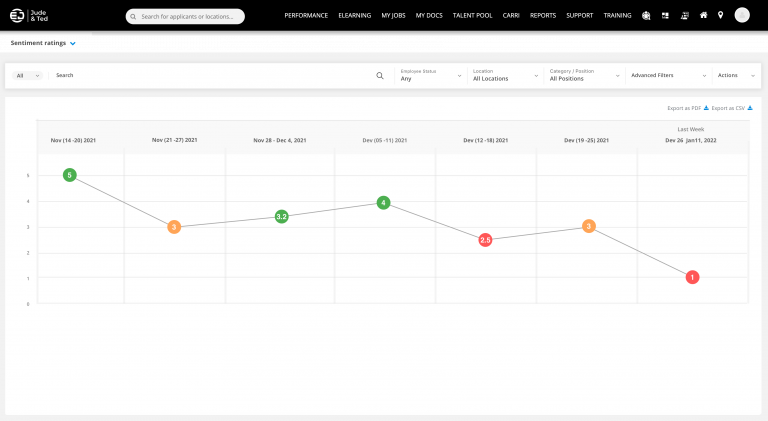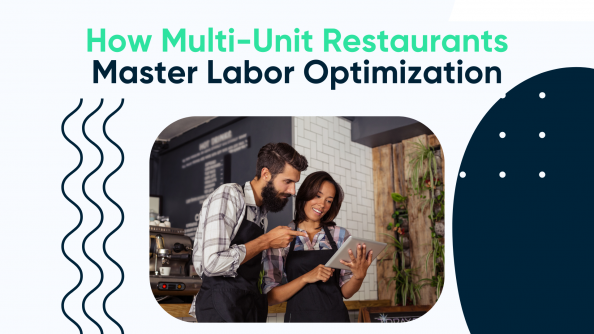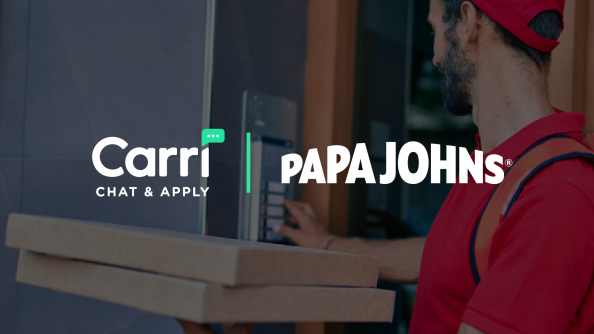5 Trends Reshaping Hospitality Workforce Management in 2024

- By Harri Insider Team | January 11, 2024
The hospitality industry is witnessing a transformative shift in workforce management, driven largely by evolving employee expectations. In 2024, five key trends are emerging as pivotal forces in shaping this industry. In addition to redefining operational efficiency and leadership development, operators are centralizing employee engagement as a crucial element of success.
Data-driven personalization of the employee experience
The hospitality industry often faces high employee turnover, which is costly and disruptive. By using data to tailor employee and candidate experiences, operators can increase job satisfaction and loyalty, thereby reducing turnover rates and associated costs. This contributes to enhanced employee engagement thereby directly influencing improved service quality.
How to leverage data to drive personalization of the employee experience:
- Employee Feedback Analysis: Collecting and analyzing feedback through surveys and digital platforms offers insights to tailor training, development programs, and work environments to employee needs and preferences.
- Scheduling Optimization: Data on employee availability and preferences can be used to optimize scheduling, balancing individual needs with operational efficiency.
- Sentiment Analysis: Analyzing sentiment in employee communications provides insights into morale and concerns, guiding policy and workplace improvements.
- Customized Rewards and Recognition: Data on employee achievements and preferred reward types can shape a personalized recognition program that aligns with individual motivations.
Harri Engage makes it easy to streamline the gathering and analysis of employee feedback so you can equip your managers with data to drive meaningful improvements.

Cultivating Leaders from the Frontline
Hospitality operators are proactively developing their frontline workforce into future leaders. This approach taps into the employees’ deep understanding of the hospitality environment and customer service excellence, facilitating effective leadership transitions. It boosts morale and retention by offering career progression opportunities, proving to be a cost-effective method compared to external recruitment, while fostering a resilient and skilled leadership pipeline.
“We provide structured development, often linked to a nationally recognised qualification, that allows you to join us as a kitchen porter and move your way through all the cheffing roles, or to join as a member of the bar team and move through to supervisor, assistant manager and into general manager.”
Dawn Browne, People & Talent Director at Fuller, Smith & Turner
Strategies for leadership development:
- Frontline-to-Leadership Pathways: Implement structured programs that allow frontline staff, like servers or housekeepers, to gradually take on supervisory roles, learning management skills on the job.
- Skill-Specific Workshops: Conduct workshops focused on hospitality-specific leadership skills such as guest service excellence, team management, and operational efficiency.
- Mentorship and Shadowing Programs: Pair potential leaders with experienced managers for mentorship, providing first-hand insights into effective leadership within the hospitality setting.
- Performance Metrics and Feedback Loop: Combining employee feedback with performance data helps identify individual strengths and areas for growth, informing personalized development plans and targeted training.
With Harri Engage, seamlessly track and nurture emerging leaders within your teams using robust performance analytics and feedback tools, aligning workforce development with your organizational growth strategies.
Integrating AI and Technology for Operational Efficiency
The increased adoption of AI technology in the hospitality industry is set to transform operations and customer experiences significantly. By integrating AI-driven tools for tasks like scheduling and predictive analytics, operators are enhancing operational efficiency and personalization. This shift not only leads to more accurate forecasting and resource allocation but also improves the overall customer service experience, addressing the challenge of balancing efficiency with quality service.
Restaurant and hospitality operators can leverage AI to enhance efficiency and personalization in several ways:
- Operational Automation: Employ AI for operational tasks such as inventory management and demand forecasting, freeing up staff to focus on guest interactions.
- AI-Driven Scheduling: Utilize AI tools for efficient staff scheduling, aligning workforce allocation with predicted business needs.
- Data-Driven Insights: Leverage AI to analyze guest and employee data, providing valuable insights for personalized experiences and decision-making.
- Chatbot Integration for Hiring: Implement AI-driven chatbots to streamline the hiring process, handling inquiries and assisting with scheduling interviews.
- Customer Service Enhancement: Use AI for initial customer service interactions, ensuring complex queries are managed by human staff for a balanced service approach.
Streamline your operations and leverage tech like Carri, an AI chatbot that simplifies the hiring process by handling booking, logistics, and communication with candidates.

Predictive Analytics to Address Hospitality Labor Shortages
In tackling labor shortages, the hospitality industry is turning to predictive analytics and automation. These technologies enable operators to make informed staffing decisions by analyzing trends in customer behavior and employee performance. Predictive analytics not only accurately forecasts staffing needs but also identifies patterns that may lead to employee turnover, allowing for proactive measures to boost retention and job satisfaction. This data-driven strategy results in optimized labor costs, higher service levels, and a more agile operational response to changing demands.
Strategies for Effective Use of Predictive Analytics:
- Staffing Forecasting: Use predictive analytics to anticipate staffing requirements based on customer footfall and peak service times.
- Turnover Reduction Analysis: Analyze staff performance and engagement data to identify early signs of turnover or disengagement.
- Efficient Resource Allocation: Employ automation in scheduling to ensure the right number of staff at the right times, enhancing operational efficiency.
What if you could predict turnover before it happens? You can, with Harri Engage. Encourage regular, consistent feedback from your employees using automated touchpoints so you can identify trends and intervene before it’s too late.
Competing with Remote-Friendly Industries
In response to the growing trend of remote work in various sectors, hospitality operators are adapting by offering more flexible scheduling options and identifying roles suitable for remote work, such as administrative or customer-service tasks. These adaptations aim to provide better work-life balance and showcase long-term career growth opportunities within the hospitality industry, making it a more appealing option compared to other sectors.
Strategies for Flexibility and Remote Work:
- Hybrid Roles Creation: Identify roles that can partially or fully function in a remote setting. For instance, a customer service representative for a hotel or restaurant chain could work remotely, managing bookings, inquiries, or complaints over the phone or through online platforms.
- Innovative Remote Training: Leverage technology to provide remote training. This can help induct new employees and upskill existing staff without the need for physical presence.
- Flexible Scheduling Models: Implement more flexible scheduling for on-site roles. This could include self-scheduling systems, split shifts, or compressed workweeks to give employees more control over their work hours, akin to the flexibility found in remote jobs.
- Remote Order Taking and Management: In fast-food restaurants or casual dining, consider remote order taking. Employees could manage drive-thru orders or online delivery requests from a remote setting, reducing in-house staff needs during peak hours.
- Utilizing AI for Customer Service: Implement AI-driven chatbots for initial customer interactions, reserving human interaction for more complex queries. This can streamline operations and reduce the on-site staffing requirement.
Harri offers tools to help you implement these flexible and remote work strategies effectively. From streamlined scheduling to remote training capabilities, Harri ensures that you can provide the flexibility and development opportunities needed to compete in today’s evolving job market.
As these trends continue to emerge in 2024, it’s clear that the heart of them is the intersection of employee engagement and hospitality. The integration of data-driven strategies, AI technology, and a focus on nurturing internal talent are all responses to the changing dynamics of employee needs and aspirations and are solved by finding more innovative ways to connect and engage.
Want to learn how to leverage a leading engagement tool to create a more satisfied, and productive hospitality workforce? Check out a demo of Harri Engage today.





















